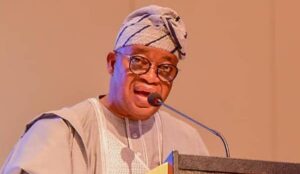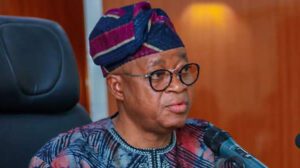NERC postpones hearing of petition against Asaba Distribution Ltd’s licence indefinitely
The Nigerian Electricity Regulatory Commission (NERC) has postponed the hearing of a petition against granting of an Independent Electricity Distribution Network (IEDN) Licence to Asaba Distribution Limited indefinitely.
The petition, filed by the Benin Electricity Distribution (BEDC) Plc, was scheduled for hearing on Tuesday before it was postponed indefinitely.
NERC, in a statement posted on its website, said the postponement was necessitated by a suit filed by BEDC at the Federal High Court, Abuja, on Jan. 15.
“The commission acknowledges that the matter is now subject to judicial review and hereby notifies the general public that the hearing shall no longer hold as scheduled.
“The parties are now required to present their respective positions to the court in a manner that respects the independence of the judiciary
“The commission regrets any inconvenience this indefinite postponement may cause to the public,” NERC said in the statement.
It said NERC and Asaba Distribution Ltd. were sued by BEDC, adding that the regulatory agency was served with the court processes on Jan. 18.
NERC said in the suit that BEDC was challenging the granting of an IEDN licence to ADL to operate anywhere within its electricity distribution area.
It said the DisCo also sought an order of perpetual injunction restraining the commission from granting ADL an IEDN licence to operate within the BEDC electricity distribution area.
BEDC also asked the court for an order of perpetual injunction restraining ADL from approaching any of the customers of BEDC or from taking any step or actions toward the supply of electricity to any of the customers of BEDC in the BEDC electricity distribution area.
“Section 71(6) of Electric Power Sector Reform Act (EPSRA) provides that unless expressly indicated in the licence, the grant of a licence shall not hinder or restrict the grant of a licence to another person for a like purpose.
“In the absence of such an express indication, the licensee shall not claim any exclusivity, provided that the commission may allow a licenced activity to be exclusive for all or part of the period of the licence, for a specific purpose, for a geographical area, or for some combination of the foregoing,” it said.
It said EPSRA recognised the public interest test as a critical factor for the consideration of all applications for licences and also provided administrative remedies that must be explored within the framework of the Act prior to seeking external redress.
Newsmen also recalls that NERC had in a statement on Jan. 15, said the hearing was pursuant to Section 70 (2) of the EPSRA.
According to the commission, it is also pursuant to Clause 11 of the NERC Application for Licences Regulations 2010 and Section 17 of NERC (Business Rules of the Commission) Regulations (Business Rules) 2006.
It said the petition would be heard and determined by a panel of three commissioners of the commission.




